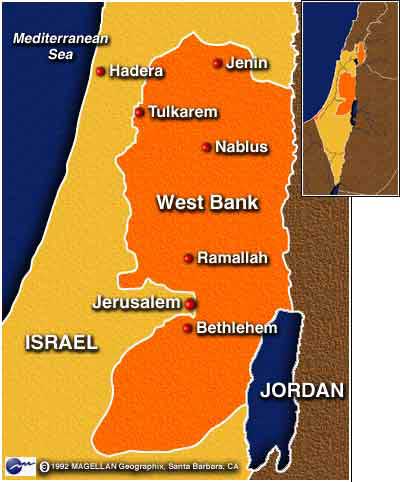
My wife and I just returned home from a three-week visit to Israel. To be accurate, we also visited the Palestinian West Bank for a day; a profoundly memorable day at that.
In some ways, our trip followed familiar patterns: visiting family and friends, taking in the wondrous landscapes and vistas, and enjoying the delicious foods with utter abandon. But in other ways, at least some of our experiences seemed to defy normal expectations, and seemed to negate the usual narratives we have come to know.
In the West Bank, for example, we were honored to meet a man who is probably the wealthiest Palestinian on earth, who lives in a palatial mansion he built, and who employs some 60,000 people, second only to the government itself. Did you know that such people live in the West Bank? In Nazareth, we met a Christian Israeli Arab, a builder who has constructed thousands of homes in Israel and Europe, and who hosted us for a delicious meal, along with some 200 Jewish Israelis, as a sign of friendship, and as a willingness to build bridges. At the Dead Sea we spoke to a Jewish billionaire who builds industrial parks for Jews and Arabs to work together because he believes that jobs will bring peace. In Jerusalem, we met the director of a think tank, a Jew who devotes himself to exposing discrimination against Israeli Arabs, in an attempt to perfect Israel’s democracy. In these and other ways, our trip defied normal conventions.
But what of the prospect for peace in the Middle East; the perennial question of our time?
Actually, I came home even more convinced than ever, that there is at least a decent chance for peace, but not because of what you might expect. You might think that people on both sides are tired of war. Well yes, but that will not bring peace, in and of itself. You might think that Israel is sick and tired of world condemnation. Well yes, but that too will not bring peace.
So what then will bring peace between Israel and the Palestinians? What is likely to work now, when so many other attempts have failed before? Only one thing: the need to thwart a common enemy.
It comes as no surprise that Fattah and Hamas are engaged in an existential struggle for survival. I don’t think it’s an exaggeration to say that Hamas is a knife at the throat of Fattah. The more moderate elements of Fattah in the West Bank do not want to see a Hamas takeover of the West Bank, as took place in Gaza. To meet the threat of Hamas, Fattah has decided to do two things: to consolidate its security apparatus, and to create jobs. General Dayton, of the U.S., in cooperation with Jordan and Israel, is working on the security issues. Prime Minister Fayyad, a financial maven of some renown, has been quite successful in creating jobs, and can take pride in a 7% economic growth rate this year. Netanyahu is cooperating in this regard by reducing the number of checkpoints and by advocating on behalf of what he calls “an economic peace.”
If you ask me, the threat that Hamas poses to Fattah opens a window of opportunity for Israel, and for the prospects for peace. If Israel plays her cards right, she will play an active role in this regard, and become a willing partner to help Fattah to consolidate its security, and to create jobs. Israel could use her economic, educational, and research capabilities to help revitalize the Palestinian economy in the West Bank. She could agree to all this on one condition: a comprehensive peace deal between Israel and the Palestinians of the West Bank. The Palestinians would likely agree, not because they love Israel, God forbid, but because they need Israel to stave off a common threat, the threat of Hamas.
A partnership between Israel and the West Bank would be a way of putting pressure on Hamas. Ordinary citizens in Gaza would see the prosperity in the West Bank and would naturally say to themselves: “Hey, where is our share?” They could pressure Hamas in ways that Israel can’t. When Israel fights Hamas she creates martyrs. But when their own people pressure Hamas, now that’s horse of a different color. After a while, without the support of the people, even Hamas could decide to moderate its views, and join the bandwagon of job creation, as a means of legitimating its hold on power. At such time, Fattah and Hamas could become two legitimate political parties, each using legitimate means to consolidate political power. Each creating jobs, instead of instigating terror.
There is a saying in the Middle East: “The enemy of my enemy is my friend.” Could this be a case in point, and could it mean peace?



